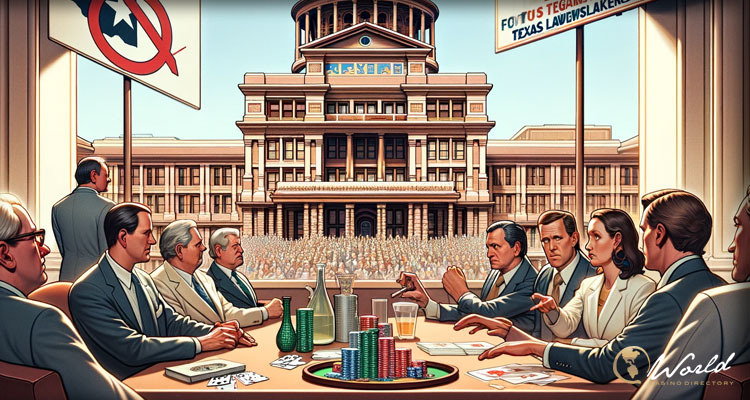Efforts to legalize casino gambling in Texas appear to face even steeper challenges in the upcoming legislative session. In 2023, the Texas House narrowly missed the required votes to advance a constitutional amendment allowing the establishment of eight destination resort casinos. State Rep. Jeff Leach, R-Allen, emphasized that the Senate will need to take the lead when the new session begins in January.
“Based on what happened last session, I believe it’s generally understood that unless and until there is real movement and momentum in the Senate next session — meaning the Senate actually taking up and considering the issue — there is likely not going to be any meaningful action on it in the Texas House,” Leach conveyed via text to The Dallas Morning News.
The Senate poses a significant obstacle, particularly with Lt. Gov. Dan Patrick’s stance. Patrick, who presides over the Senate, has been vocal about the lack of support for casinos within the chamber. “My experience and my knowledge is that we aren’t even close to having 15 or 16 votes for casinos,” Patrick mentioned in a December 1 interview with CBS News Texas.
Further complicating the matter is the Texas Republican Party’s recent platform, which strongly opposes gambling expansion and urges GOP lawmakers to reject campaign contributions from gambling-related lobbyists and organizations. “We oppose any expansion of gambling, including legalized casino gambling,” states the party platform.
Lobbying Efforts Continue
Despite these setbacks, Las Vegas Sands, a major player in the casino and resort industry, continues to lobby for the establishment of destination casinos in Texas. The company has invested heavily in lobbying efforts over the past two legislative sessions and has funneled millions of dollars into lawmakers’ campaigns through its political action committees.
The Texas Constitution currently prohibits gambling except on federally recognized tribal lands and for parimutuel horse and dog racing. Changing this requires a two-thirds majority vote in both the House and Senate, followed by voter approval.
Leach introduced a bill and constitutional amendment in 2023 aimed at legalizing digital sports betting, which passed the House with a 101-42 vote but failed to secure a vote in the Senate. Another bill by GOP Rep. John Kuempel of Seguin proposed the creation of eight resort-style casinos, including two in the Dallas-Fort Worth area. However, it was withdrawn from the House agenda due to insufficient support. Rep. Charlie Geren, R-Fort Worth, also introduced a constitutional amendment in favor of casinos, which fell short by eight votes.
Despite these hurdles, a spokesman for the Las Vegas Sands PAC indicated that the push for destination resort casinos in Texas will persist. Proponents of these casinos argue they would generate significant economic benefits through taxes, job creation, and construction projects.
Mark Cuban, the former majority owner of the Dallas Mavericks, expressed his ambition in 2022 to build a new arena within a resort and casino in collaboration with the Sands. Cuban’s majority stake in the Mavericks was later acquired by Miriam Adelson, the major shareholder of Las Vegas Sands, for $3.9 billion.
Patrick Dumont, Miriam Adelson’s son-in-law and a key figure in the Mavericks’ purchase, sees potential in developing destination resorts in Texas over the coming years. Dumont succeeded Cuban as the Mavericks’ governor. Since 2018, Miriam Adelson and her late husband, Sheldon Adelson, have donated $21.5 million to Texas political organizations and candidates, including $1.5 million to Gov. Greg Abbott’s campaign. Miriam Adelson has already contributed $4.1 million to the Texas Sands PAC in 2024.
Gov. Abbott has shown some openness towards the idea of resort casinos in Texas. House Speaker Dade Phelan also supports the concept, though he faces challenges in the upcoming 2025 session with two announced candidates vying for his position.
Lt. Gov. Patrick, however, has made it clear that any gambling legislation must garner substantial Republican support. With Republicans holding a 19-12 majority in the Senate, he insists on a majority Republican backing for such bills. “We don’t pass any bills out that have a handful of Republicans and all the Democrats,” Patrick recently told radio host Mark Davis. “I’m not passing a bill with all my Democrats and five or six Republicans.”



